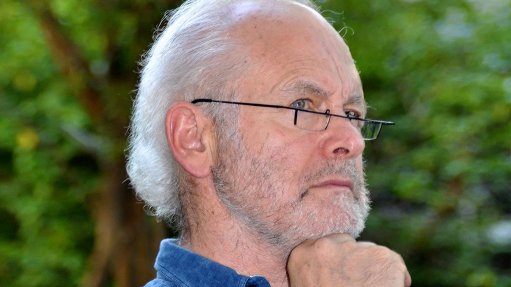
Professor Raymond Suttner
In observing the current election campaigns one is struck by the lack of debate and vacuousness of ideas circulated in order to win votes. Silences may tell more than what is said.
Insofar as opposition parties present themselves as alternatives to the Zuma-led ANC, can they say they have addressed the most important features of that government they purport to oppose and ask us to entrust them with replacing? They have referred to some of the most glaring cases of corruption, as in Nkandla, but there has been little concern about the way in which the lives of people at a less visible, local level are affected.
Despite hyperpatriarchy being a central feature of the present government there is silence from all parties on questions of patriarchy. Insofar as it is inextricably tied to masculine violence, the scourge of rape and attacks on sexual choices and identities other than heterosexuality, this silence has increased dangers facing the vulnerable despite their constitutional rights.
The opposition is also silent on the power of chiefs. It is significant that chiefs, who were not part of the ANC- led alliance to any significant degree in the period immediately preceding 1990, now enjoy an elevated importance. They have not figured prominently in electoral campaigning for they do not rely on popularity for the powers they have and to which they aspire.
We have seen the ANC’s steps to reconstitute chiefly power in old Bantustan boundaries under the Traditional Courts Bill that has temporarily lapsed: for we have been assured that the bill will be re-introduced. The new land restitution bill, while depicted as opening opportunity for wider land claims is in fact unaffordable and what will be allocated may well be used to enrich chiefs and not poor communities. This has already been intimated by King Goodwill Zwelithini’s undertaking to help traditional leaders launch land claims to reclaim what is ‘rightfully theirs.’
There are silences on these and other important questions. However empty the electoral debate has been, even opposition parties could carry weight if they were to use their office, if elected to parliament, to advance constitutional rights in defence of the vulnerable.
It is in the context of vulnerability and lack of protection from state repression that we should understand the decision of Abahlali baseMjondolo to form an electoral agreement with the DA in KwaZulu-Natal. Formed by shack dwellers in 2005, Abahlali represents the homeless or those that hold onto homes or shacks under the threat and fact of continued state repression. They have previously followed a ‘no vote’ stance, advocating spoiling their votes rather than support any political party.
In an atmosphere of murder, demolition of shacks in contravention of court orders and a range of other acts of violence and irregularities the movement has sought allies. If powerful organisations of the left had come to their defence that may have been of value, but that has not happened. Abahlali has had no shield between itself and the authorities. In this context Abahlali met with all political parties other than the ANC in order to offer its support in KZN in exchange for agreed undertakings.
As described by Julian Brown (Daily Maverick 04/05/2014) after lengthy consultation with its members at all levels, a general meeting decided to form a tactical electoral alliance in exchange for the DA meeting obligations that are listed in a lengthy agreement. It commits the DA, inter alia, to consult with residents over housing matters, promote upgrading informal settlements, defend informal traders and investigate wrongful allocation of RDP houses in specific areas around Durban.
That the DA enters such a pact is a break from its general anti-poor policies and indeed its approach towards shack dwellers in the Western Cape. Many may feel they cannot be trusted. But what was Abahlali to do in the light of their vulnerability and the toll that its members were taking in deaths, injuries and evictions? Abahlali president S’bu Zikode says, ‘for this decision we have decided to suspend ideology for a clear goal: weaken the ANC, guarantee the security and protection of the shack dwellers’.
At the same time, the stakes are high for the DA, for if they do not honour their obligations they can bury any chance of winning support from weak and poor communities in the future.
It has been argued that while elections are an important gain, in a time when parliamentarians refuse to abide by their constitutional obligations, it is important to build power and organisation beyond electoral contests. Yet, what we learn from this episode is that while we may applaud the establishment of social movements that exist beyond the electoral arena, they do exist within the boundaries of the state. We may admire the ideas and vision of Abahlali but can we protect them when they are under attack? How are they to be defended? Parliamentary parties still have significant power and they can potentially offer a level of protection that those outside cannot always, or are unwilling to offer. Whether the DA will in fact provide such support we still need to see.
Professor Raymond Suttner, attached to Rhodes University and UNISA, is an analyst and professional public speaker on current political and historical questions and questions of leadership. He writes a regular column and is interviewed weekly on Creamer Media’s Polity.org.za. Suttner is a former political prisoner and was in the leadership of the ANC-led alliance in the 1990s. He blogs at raymondsuttner.com.